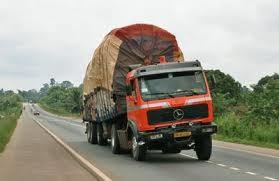Operators in the Haulage and Transit Trade (OHTT) sector have made a plea to government to revert to the axle load limit agreed upon by the European Union (EU) and the Economic Community of West African States (ECOWAS) for implementation by the member countries.
Ghana, they noted, was the only country in the sub-region, which had reviewed the limit downwards from the approved 68 tonnes to 60 tonnes ‘gross weight for six axle load trucks’.
This had become a major disincentive with importers from the landlocked countries diverting their goods and using other transit routes, something that was affecting the haulage and transit trade business and “it is the ramifications on the nation’s economy”.
They expressed the sentiments at a day’s stakeholders’ dialogue organised by the Ghana Shippers Authority (GSA) and the Borderless Alliance Initiative to create a platform for actors in the sector to discuss the challenges posed by the implementation of the new axle load.
It was also to chart a way forward for trade facilitation and the competitiveness of Ghana’s trade corridors. OHTT insisted that the implementation of the new policy was making the trucking of goods very expensive and negatively hurting Ghana’s competiveness in trade and transport and urged the government to return to the old regime to help save their businesses.
Mr Robin-Huws Barnes, Chief Executive Officer of GSA, said the dialogue was meant to explore ways to overcome challenges resulting from the axle load limit implementation and to shed some light on the essentials of the policy. He said while it was important to highlight the damage to the roads by loading above the permitted weight, it was equally vital to mitigate the increase in the cost of road transportation.
The Authority’s position was that a harmonized axle load implementation within the sub-region would create the needed environment for economic growth, facilitate free movement of goods and persons as envisioned by ECOWAS trade protocols.
Mr Frank Tony Eshun, President of Borderless Alliance, West Africa, said the organisation would continue to engage all stakeholders on the implementation of the axle load regime and to educate stakeholders on the new regulations.
Business News of Sunday, 13 July 2014
Source: GNA
Revert to approved axle load limit - OHTT urges gov’t













